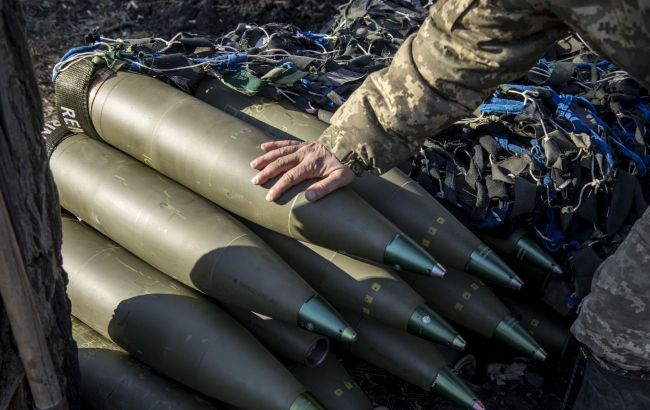EU faces challenges in increasing ammunition production for Ukraine - The Economist
 Photo: The EU is facing the problem of increasing production of shells for Ukraine
Photo: The EU is facing the problem of increasing production of shells for Ukraine
Ukraine finds itself under pressure on the battlefield as Europe tries to boost its small production of artillery shells and missiles, according to The Economist.
As noted in the article, in January, the EU admitted that it had fallen far short of its commitment to provide Ukraine with 1 million shells by March 2024. In March, the bloc allocated 500 million euros to increase production. But the bottleneck is the one that was the last thing on everyone's mind until recently: the lack of explosives.
The scheme in question is called the Act in Support of Ammunition Production (ASAP), and three-quarters of the funding, or about 372 million euros, will be directed to booming producers.
Europe needs explosives to meet its goal of producing 2 million shells a year by the end of 2025. Each artillery shell is filled with 10.8 kg of high explosive, such as TNT, octogen, or hexogen. Additional charges are also needed to fire shells tens of kilometers. Other munitions require even more: for example, the high-explosive warhead of a Storm Shadow missile weighs about 450 kg.
The problem is that explosives manufacturers are not sure that production can be increased and fear that the peculiarities of the industry will hinder the growth that Ukraine needs, the agency notes.
Shortage of TNT
The end of the Cold War led to a sharp drop in demand for weapons and forced many European explosives producers to wind down their operations, merge, or simply close their facilities. The United Kingdom, for example, closed its last explosives plant in 2008. The last major TNT producer in Europe is located in northern Poland. In other countries, many state-owned facilities have been either privatized or mothballed. For decades, their production has been focused on peacetime efficiency rather than industrial scale, says Johann Heherl, a professor at the University of the Bundeswehr in Munich. As a result, the supply chain has very little capacity to meet the growing demand.
Only a few companies still produce high-energy materials that meet NATO standards. One of them is Chemring Nobel, which has a large plant in Setra, Norway. The other is France's Eurenco, which operates an equally huge facility in Karlskog, Sweden. Both firms' order books have increased since the Russian invasion of Ukraine. The Eurenco plant will be overloaded by 2030, while the Chemring plant in Saetra will be operating at full capacity.
Tim Lawrenson of the International Institute for Strategic Studies, a think tank, says it will take time to restart the mothballed plants, given the need to retool and repair the facilities.
Tempted by ASAP subsidies, companies are investing in capacity expansion. However, one industry source notes that it can take three to seven years to build a plant from scratch. A case in point: Rheinmetall, an ammunition supplier, is building an explosives production facility in Hungary; however, production will not begin until 2027. Many safety and environmental regulations can also hinder capacity expansion, says Christian Melling of the German Council on Foreign Relations.
Addressing challenges
Amid the difficulties, some ammunition suppliers are looking outside the country for their explosives. Reports indicate that Indian and Japanese explosives manufacturers are partially filling the gap. Some experts are concerned that the imported explosives are of poorer quality and could therefore damage equipment.
The rhetoric of European governments is optimistic, and some progress has indeed been made: annual EU-wide production of shells is projected to reach at least 1.4 million by the end of 2024, up from about 500,000 a year ago.
When laying the first brick for the Eurenco fuel plant in Bergerac on April 11, French President Emmanuel Macron defended the effectiveness of France's military economy. The plant, he said, will open in record time by 2025. However, as Russia's summer offensive is already in full swing, this is not enough to help Ukraine, The Economist writes.
Earlier this year, the Czech Republic announced that it had found a large number of shells outside the EU and began raising money to buy them. Participants in the initiative signed an agreement under which the Ukrainian Armed Forces will receive 1 million rounds of ammunition.
According to the head of the EU diplomatic mission, Josep Borrell, the first deliveries of shells to Ukraine under the Czech initiative will begin in late May or early June.

